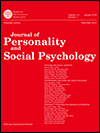Self-determination theory holds that the intrinsic and extrinsic content of people’s aspirations differentially affect their wellness. An evidence base spanning nearly 30 years indicates that focusing on intrinsic goals (such as for growth, relationships, community giving, and health) promotes well-being, whereas a focus on extrinsic goals (such as for wealth, fame, and beauty) deters well-being. Yet, the evidence base contains exceptions, and some authors have argued that focusing on extrinsic goals may not be universally detrimental. We conducted a systematic review and used multilevel meta-analytic structural equation modeling to evaluate the links between intrinsic and extrinsic aspirations with indices of well-being and ill-being. Across 92 reports (105 studies), 1,808 effects, and a total sample of N = 70,110, we found that intrinsic aspirations were linked positively with well-being, r = 0.24 [95% CI 0.22, 0.27], and negatively with ill-being, r = −0.11 [−0.14, −0.08]. When the variety of extrinsic aspiration scoring methods were combined, the link with well-being was not statistically significant, r = 0.02 [−0.02, 0.06]. However, when extrinsic aspirations were evaluated in terms of their predominance in the overall pattern of aspiring the effect was universally detrimental, linking negatively to well-being, r = −0.22 [−0.32, −0.11], and positively to ill-being, r = 0.23 [0.17, 0.30]. Meta-analytic conclusions about the associations between goal types and wellness are important because they inform how individuals could shape aspirations to support their own happiness and how groups and institutions can frame goals such that their pursuit is for the common good. (PsycInfo Database Record (c) 2023 APA, all rights reserved)


